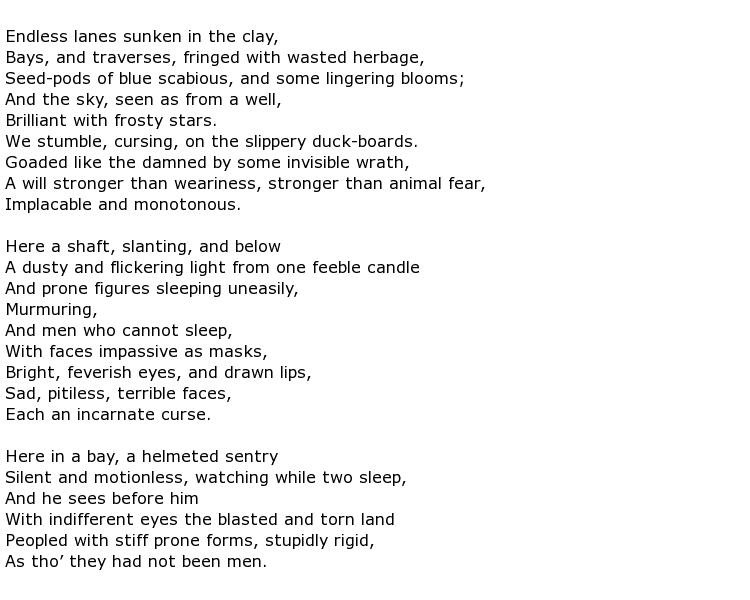 Frederic Manning was an Australian-born poet and novelist who lived most of his life in England.
Frederic Manning was an Australian-born poet and novelist who lived most of his life in England.
He was born on the 22nd July 1882 in Sydney into a large family of eight children, His father was the politician Sir William Patrick Manning whose ancestors had emigrated from Ireland. Frederic was educated at home and suffered with asthma from his infancy. Although the family were Roman Catholics he formed a close friendship with an Anglican minister called the Reverend Arthur Galton. When Galton decided to go to live in England in 1898, Manning went with him and they lived together in Lincolnshire.
Manning returned to Australia after two years but he was back in England for good three years later, once more going to Galton to live. It was an odd relationship with Galton being a dominating influence on his young charge. Manning read everything that he could get hold of and had a particular liking for books on philosophy and the classics. He had ambitions to become a published writer and produced a verse-monologue called The Vigil of Brunhild in 1907. Two years later he wrote Scenes and Portraits which took the form of an imagined debate on religious topics with the participants being famous historical figures such as Thomas Cromwell, Socrates and Francis of Assisi.
Literary critics found these books interesting but they were not commercially successful. He was seen as merely an up and coming writer who had not yet reached maturity. In 1910 his first collection of poetry came out under the title Poems. He moved to London to seek out like-minded individuals and came across fellow writers such as Richard Aldington Max Beerbohm and Ezra Pound, usually in public houses or literary salons. This kind of environment did not improve his health in any way and he was still suffering with asthma.
Despite that he enlisted into the Army as war broke out and served, for a time, in the trenches in France. He served as an infantry soldier, achieving the rank of Lance Corporal, before gaining a commission in 1917 and being sent to Ireland. This new status did not sit well with him though and he resigned in February 1918 having experienced many bouts of excessive drinking which got him into trouble with his superior officers. Somehow he was still capable of writing though and another collection of poetry came out in 1917 called Ediola which contained a great deal of introspection and imagism on the theme of war. Here are the opening verses to one of his poems, simply called The Trenches. It is a stark and mournful description of the hardships and hopelessness suffered by front line soldiers:

Manning’s poetry also appeared in anthologies alongside others of his time such as Walter de la Mare, D H Lawrence and Siegfried Sassoon. He found it a struggle to survive as a poet though, especially so after the death of his friend and mentor Reverend Galton. He turned to other projects such as biographies and, in 1929, he wrote The Middle Parts of Fortune, an account of the experiences of ordinary soldiers on the western front.
Frederic Manning died on the 22nd February 1935 while in a nursing home in Hampstead. He was only 52 years old but his lifelong respiratory problems finally became too much and he was unable to survive any more damage to his lungs.

